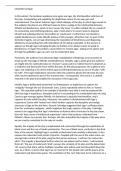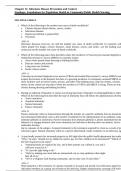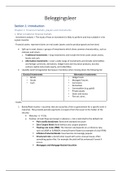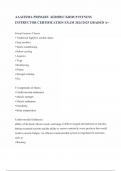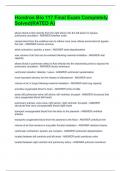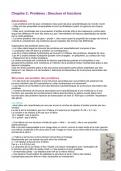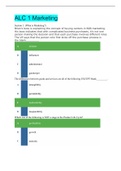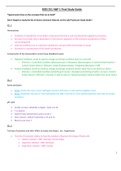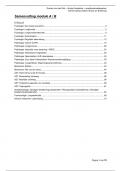Charlotte Corrigan
In this extract, the Jacobean audience once again see Iago, the Machiavellian anti-hero of
the play, manipulating and exploiting his duplicitous nature for his own gain and
entertainment. The extract features Iago’s third soliloquy of the play in which Iago reveals to
the audience his plan to use Michael Cassio to drive a wedge in the relationship between
Othello and Desdemona, which in turn causes ‘the moor’ to suffer multiple fits as a result of
his consuming, overwhelming jealousy. Iago’s main plan is to cause Cassio to disgrace
himself and subsequently lose his position as ‘Lieutenant’. Furthermore, he intends to
exploit Desdemona to make Othello jealous of this younger, attractive man. As part of this
domestic tragedy, we see Iago destroying the reputation of Desdemona and disgracing
Othello by emasculating him with intimations of him being cuckolded. In this extract, it
appears as though Iago is bringing his plan to fruition as he advises Cassio to speak to
Desdemona, to regain his position. Cassio listens to ‘honest Iago’, taking on his advice and
through his gullibility, Iago can carry out his malevolent plan.
Previously, the audience has witnessed Iago’s exploitation of Roderigo as he promises to
break-up the marriage of Othello and Desdemona. Notably, Iago’s asides give the audience
an insight into his malevolent plan to ‘ensnare’ Cassio and it is evident that he is depicted as
a vindictive and destructive force within the play. As the play progresses, the audience sees
Iago’s net widening as he seems intent upon sacrificing Desdemona as part of his plan ‘wife
for wife’. The tragic implications resonate when the audience gleans the idea that his own
wife may be exploited as part of his macabre plan. Consequently, this scene is a catalytic
moment in the play that enables the execution of his tragic plan.
Initially, Iago is deliberately presented, by Shakespeare, as duplicitous to capture his
‘malignity’ through the use of dramatic irony. Cassio repeatedly refers to him as ‘honest
Iago’. This repeated epithet is an example of dramatic irony that is used to propound the
idea that Iago is duplicitous, deceptive and he is succeeding in his manipulative plan of using
Cassio to get revenge against Othello. His behaviour is typically Machiavellian, and it
captures his role within the play. Moreover, the epithet is dichotomised with Iago’s
response to Cassio with ‘honest fool’ which further captures the deceptive and malign
character of Iago as the anti-hero. Samuel Coleridge suggested that Iago’s soliloquy stems
from his ‘motiveless malignity’, which heightens the tragic aspects of the play. Coleridge
seems to be suggesting that Iago’s intentions to destroy other characters in the play stems
from his ‘keen sense of intellectual superiority’ rather than jealousy cultivated from
Othello’s failure to promote him. Perhaps, this idea intensifies the tragedy of the play when
we see cruelty committed for the sake of cruelty.
Equally, the tragedy of the play is emphasised and constructed through the exploitation of
blank verse and the use of iambic pentameter. The use of blank verse, particular in the final
lines of the extract, highlight Iago’s carefully orchestrated and carefully crafted plan. It also
exposes his malevolent and sinister character. Coupled with the use of the active voice, we
see Iago take control of his plan using the first person pronoun, ‘I will turn her virtue into
pitch’. The tragedy is developed further when his net widens and he states, ‘I will enmesh
them all’. The use of modal verb ‘shall’ conveys the certainty of his plan and the determiner
‘all’ conveys that there will be multiple casualties who will be used and discarded along the
way. As a villain, it seems that Iago has no remorse for the people who will be pawns in his
malevolent and destructive game. The symbolism of the ‘net’ links back to his reference to a
In this extract, the Jacobean audience once again see Iago, the Machiavellian anti-hero of
the play, manipulating and exploiting his duplicitous nature for his own gain and
entertainment. The extract features Iago’s third soliloquy of the play in which Iago reveals to
the audience his plan to use Michael Cassio to drive a wedge in the relationship between
Othello and Desdemona, which in turn causes ‘the moor’ to suffer multiple fits as a result of
his consuming, overwhelming jealousy. Iago’s main plan is to cause Cassio to disgrace
himself and subsequently lose his position as ‘Lieutenant’. Furthermore, he intends to
exploit Desdemona to make Othello jealous of this younger, attractive man. As part of this
domestic tragedy, we see Iago destroying the reputation of Desdemona and disgracing
Othello by emasculating him with intimations of him being cuckolded. In this extract, it
appears as though Iago is bringing his plan to fruition as he advises Cassio to speak to
Desdemona, to regain his position. Cassio listens to ‘honest Iago’, taking on his advice and
through his gullibility, Iago can carry out his malevolent plan.
Previously, the audience has witnessed Iago’s exploitation of Roderigo as he promises to
break-up the marriage of Othello and Desdemona. Notably, Iago’s asides give the audience
an insight into his malevolent plan to ‘ensnare’ Cassio and it is evident that he is depicted as
a vindictive and destructive force within the play. As the play progresses, the audience sees
Iago’s net widening as he seems intent upon sacrificing Desdemona as part of his plan ‘wife
for wife’. The tragic implications resonate when the audience gleans the idea that his own
wife may be exploited as part of his macabre plan. Consequently, this scene is a catalytic
moment in the play that enables the execution of his tragic plan.
Initially, Iago is deliberately presented, by Shakespeare, as duplicitous to capture his
‘malignity’ through the use of dramatic irony. Cassio repeatedly refers to him as ‘honest
Iago’. This repeated epithet is an example of dramatic irony that is used to propound the
idea that Iago is duplicitous, deceptive and he is succeeding in his manipulative plan of using
Cassio to get revenge against Othello. His behaviour is typically Machiavellian, and it
captures his role within the play. Moreover, the epithet is dichotomised with Iago’s
response to Cassio with ‘honest fool’ which further captures the deceptive and malign
character of Iago as the anti-hero. Samuel Coleridge suggested that Iago’s soliloquy stems
from his ‘motiveless malignity’, which heightens the tragic aspects of the play. Coleridge
seems to be suggesting that Iago’s intentions to destroy other characters in the play stems
from his ‘keen sense of intellectual superiority’ rather than jealousy cultivated from
Othello’s failure to promote him. Perhaps, this idea intensifies the tragedy of the play when
we see cruelty committed for the sake of cruelty.
Equally, the tragedy of the play is emphasised and constructed through the exploitation of
blank verse and the use of iambic pentameter. The use of blank verse, particular in the final
lines of the extract, highlight Iago’s carefully orchestrated and carefully crafted plan. It also
exposes his malevolent and sinister character. Coupled with the use of the active voice, we
see Iago take control of his plan using the first person pronoun, ‘I will turn her virtue into
pitch’. The tragedy is developed further when his net widens and he states, ‘I will enmesh
them all’. The use of modal verb ‘shall’ conveys the certainty of his plan and the determiner
‘all’ conveys that there will be multiple casualties who will be used and discarded along the
way. As a villain, it seems that Iago has no remorse for the people who will be pawns in his
malevolent and destructive game. The symbolism of the ‘net’ links back to his reference to a

